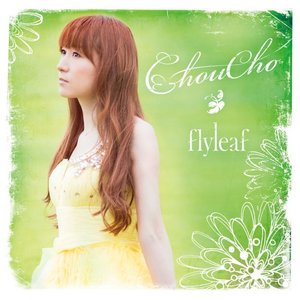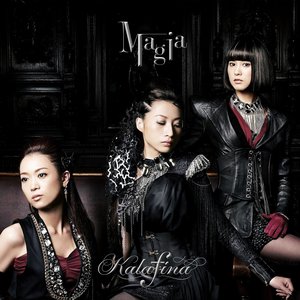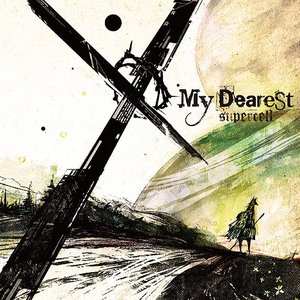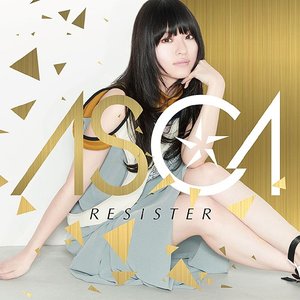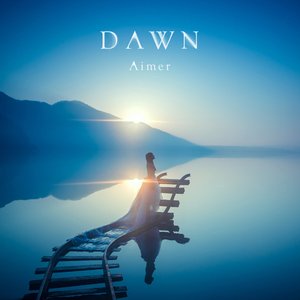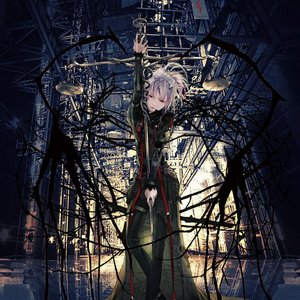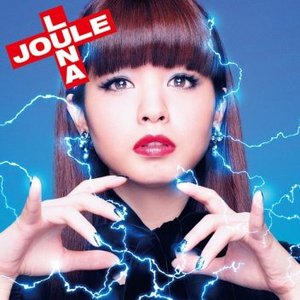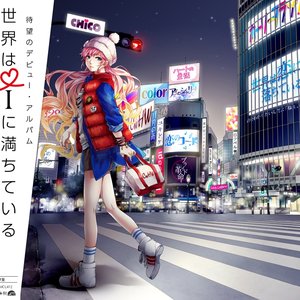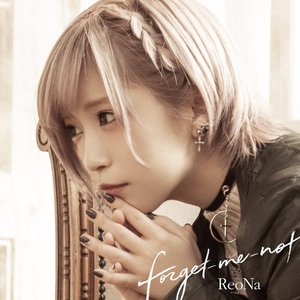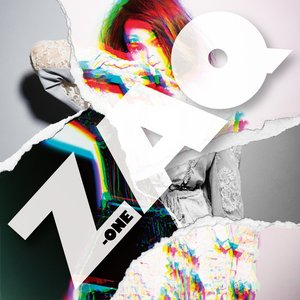Wiki
-
Release Date
16 March 2011
-
Length
13 tracks
Today Is A Beautiful Day is the second studio album by the Japanese J-pop band supercell, released on March 16, 2011 by SME. The album contains 13 music tracks written by Ryo, and sung by Nagi Yanagi (やなぎなぎ), though officially Yanagi is not a member of Supercell. Five of the tracks were previously released on three of Supercell's singles. Two different editions of the album were released: a regular CD version and a CD+DVD limited edition. Today Is A Beautiful Day peaked at No. 3 on the Japanese Oricon weekly albums chart, and in July 2011 was awarded a Gold Disc by the Recording Industry Association of Japan for having exceeded 100,000 copies shipped in a single year.
Five of the songs were used as theme songs for various media: "Kimi no Shiranai Monogatari" was used as the ending theme to the 2009 anime TV series Bakemonogatari; "Hero" was the theme song to Shueisha's manga magazine Aoharu, a special edition version of Young Jump; "Love & Roll" was the theme song to the 2009 anime film Cencoroll; "Hoshi ga Matataku Konna Yoru ni" was used as the ending theme to Type-Moon's visual novel Mahōtsukai no Yoru; and "Utakata Hanabi" was used as the 14th ending theme for the Naruto: Shippuden anime series.
Up to and including the release of Supercell's debut album Supercell (2009), songwriter Ryo had been using the Vocaloid singing synthesizer software Hatsune Miku for the vocals of the songs he produced. In transitioning to a human singer, then 21-year-old singer Nagi Yanagi was approached by Ryo to sing the vocals for Supercell's debut single "Kimi no Shiranai Monogatari" (2009). Yanagi had previously submitted cover versions of songs to the Nico Nico Douga video sharing website under the name Gazelle, and Ryo had been a fan of her voice even before uploading his own songs to Nico Nico Douga in late 2007. According to Ryo, other staff members wanted to try having all the songs on the album sung by different artists, but Ryo wanted her for the entire album. Thus, Supercell decided to stick with Yanagi as the vocalist for their second album. The album's title was partially inspired by the 2010 film Confessions and its accompanying theme song "Last Flower" by Radiohead. Ryo was impressed by the melancholic feel of the song in a film that expresses the theme that "life is wonderful," and he wanted to go with a title whose meaning would change depending on how it is perceived. In doing so, Ryo suggests that the title Today Is A Beautiful Day can be taken literally or sarcastically.
Ryo likes expressing human emotions in his music, so for Today Is A Beautiful Day, he wanted to combine feelings such as lifelong experiences and memories. He describes the process as expressing each memory as an individual story. Ryo composed the songs on the album around the idea of starting and ending with "Kimi no Shiranai Monogatari" (literally: "The Story You Don't Know"). As such, the second track on the album is "Kimi no Shiranai Monogatari", and the final track "Watashi e" (literally: "To Me") uses the same tune. For "Kimi no Shiranai Monogatari", Ryo was offered to compose the ending theme song to the 2009 anime series Bakemonogatari. Ryo did not want to copy the tone or style of the original Bakemonogatari novels, because he felt the author Nisio Isin would enjoy the song more if it was more original. Thus, Ryo wrote a different story after borrowing the general setting of the novels. While creating the album, Ryo thought it would be interesting if the first song on the album was the end of the story. The album's first track "Owari e Mukau Hajimari no Uta" (literally: "The First Song That Heads Toward the End") was composed with the image of starting with a flashback scene, diving into the past, and once again returning to the present.
For "Hero", Ryo was asked to compose a theme song for Shueisha's manga magazine Aoharu, a special edition version of Young Jump. The artists whose manga would be serialized in Aoharu were asked to draw "heroines they think are cute," and Ryo was asked to compose the song with the same theme. Ryo thought of a boy aiming to be a manga artist as the song's protagonist, and wrote it with the concept of wanting to support those who get victimized for being otaku. Since the song reflects different points of view between the protagonist and the heroine, Nagi Yanagi switches her singing style from cool to cute sounding. Ryo describes "Perfect Day" with an image close to the album title and feels the song symbolizes the album. "Perfect Day" was born from the nuance that undoubtedly tomorrow will be a perfect day.
Ryo wrote the song "Fukushū" (literally: "Revenge") with the theme of anger, and was influenced by "Snow White" to include a line in the song describing someone being told to wear red hot iron shoes and dance. Ryo wanted a song to describe emotions that would continue past adolescence, compared to the rest of the songs on the album. Yanagi found it difficult to capture the right emotions in the song. "Rock 'n' Roll Nan desu no" (literally: This Is Rock 'n' Roll) was composed with a strong drum component as the initial concept and Ryo wanted to create a song with a fast tempo and rock and roll nuance to it; the song's tempo is over 200 beats per minute. Ryo worked in collaboration with Yanagi to write the song based on the initial demo. Ryo did not initially intend on putting "Love & Roll" on the album, but others in the staff convinced him to include it.
For the middle of the album, Ryo wanted a lower tempo song with a different mood and composed "Feel So Good" based on this concept. When it was decided Ryo would compose the theme song to Type-Moon's visual novel Mahōtsukai no Yoru, he first read the original novel by Kinoko Nasu the visual novel is based on to get a feel for the work. Ryo wrote "Hoshi ga Matataku Konna Yoru ni" (literally: "The Stars Twinkle on a Night Like This") for the theme song, and there was not much trial and error in the composition of this song. Fireworks were an influence in the writing of "Utakata Hanabi" (literally: "Bubble Fireworks"). Ryo wanted the song to reflect how fireworks, which are initially brilliant, are hard to vividly remember afterwards. "Yoru ga Akeru yo" (literally: "Dawn Will Break") was the last song on the album Ryo composed, and was born from the feeling of lying in bed being unable to sleep. Ryo was inspired by the layout of the room where he works and how when dawn is breaking, the temperature slowly starts to rise, and a school near his home starts to bustle. Since "Sayonara Memories" was initially released in February 2010, Ryo used that month as the song's theme. He attempted to write a song that reflected February as the time of year in Japan when people are reminded of farewells they made the previous year, as well as the time when people think about meeting others for the first time. The last song "Watashi e" is meant to convey perseverance through tough times.
While Ryo writes all the music, an assortment of session musicians perform the songs on the album, including four guitarists and bassists, five drummers, three pianists, and a violinist. Ryo cites drummer Masayuki Muraishi as an influence in the composition of "Rock 'n' Roll Nan desu no"; Muraishi contributes on several songs on the album. In composing "Feel So Good", Ryo employed bassist Kenji Hino, son of Terumasa Hino, after he became interested in a performance of his on a TV music program. Ryo felt using strings in "Hoshi ga Matataku Konna Yoru ni" was an essential part of the song; Crusher Kimura provides the strings for three songs on the album. Haruko Ohinata is credited for the chorus of the song "Utakata Hanabi". Today Is A Beautiful Day was mixed by Takeshi Hara, Yasuhisa Kataoka, Keiji Kondo, Masashi Kudo, Eiji Makino, Koji Morimoto, Okuda Supa, and Shuji Yamaguchi. Yuji Chinone provided the mastering.
Album descriptions on Last.fm are editable by everyone. Feel free to contribute!
All user-contributed text on this page is available under the Creative Commons Attribution-ShareAlike License; additional terms may apply.

